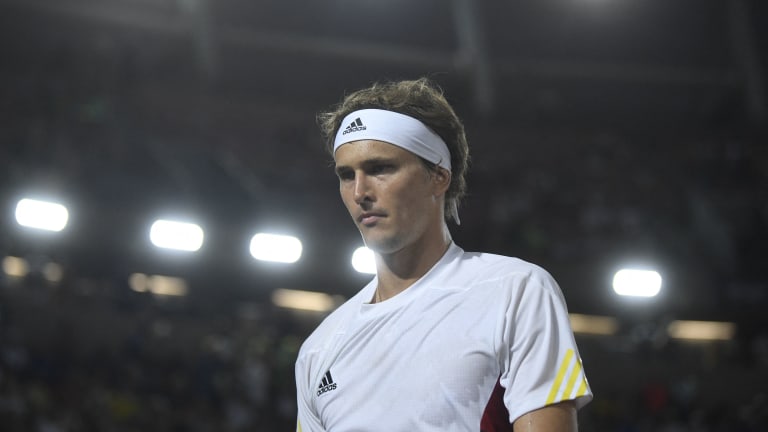Indian Wells, USA
They Said What? Tough days for the ATP after soft action taken against Zverev
By Mar 13, 2022Indian Wells, USA
Mackenzie McDonald is paying the college tennis experience forward with a new fund
By Mar 17, 2025Indian Wells, USA
Mirra Andreeva and Jack Draper win breakthrough titles at Indian Wells: What did we just witness?
By Mar 17, 2025Indian Wells, USA
Jack Draper's run through Indian Wells concludes with his first ATP Masters 1000 title
By Mar 16, 2025Indian Wells, USA
Holger Rune vs. Jack Draper: Where to Watch, Indian Wells Preview, Betting Odds
By Mar 16, 2025Indian Wells, USA
Holger Rune reaches first Indian Wells final over Daniil Medvedev
By Mar 15, 2025Indian Wells, USA
Mirra Andreeva vs. Aryna Sabalenka: Where to Watch, Indian Wells Preview, Betting Odds
By Mar 15, 2025Indian Wells, USA
Mirra Andreeva, 17, advances to Indian Wells final, beating Iga Swiatek in chilly conditions
By Mar 15, 2025Indian Wells, USA
Ruthless Aryna Sabalenka storms past Madison Keys, 6-0, 6-1, in semifinals of Indian Wells
By Mar 15, 2025Indian Wells, USA
Carlos Alcaraz vs. Jack Draper: Where to Watch, Indian Wells Preview, Betting Odds
By Mar 15, 2025They Said What? Tough days for the ATP after soft action taken against Zverev
The “worst moment” of Alexander Zverev’s life may prove to be more damaging to the image of the men's tour than his own.
Published Mar 13, 2022
Advertising
Advertising

After being kicked out of Acapulco, Zverev suited up for Germany in a Davis Cup qualifier ahead of Indian Wells.
© AFP via Getty Images
Advertising

Always Playing: Pickleballtv
The 24-hour channel of America’s fastest growing sport now has an app.
Advertising

Download the Tennis.com app on your IOS or Android device today!